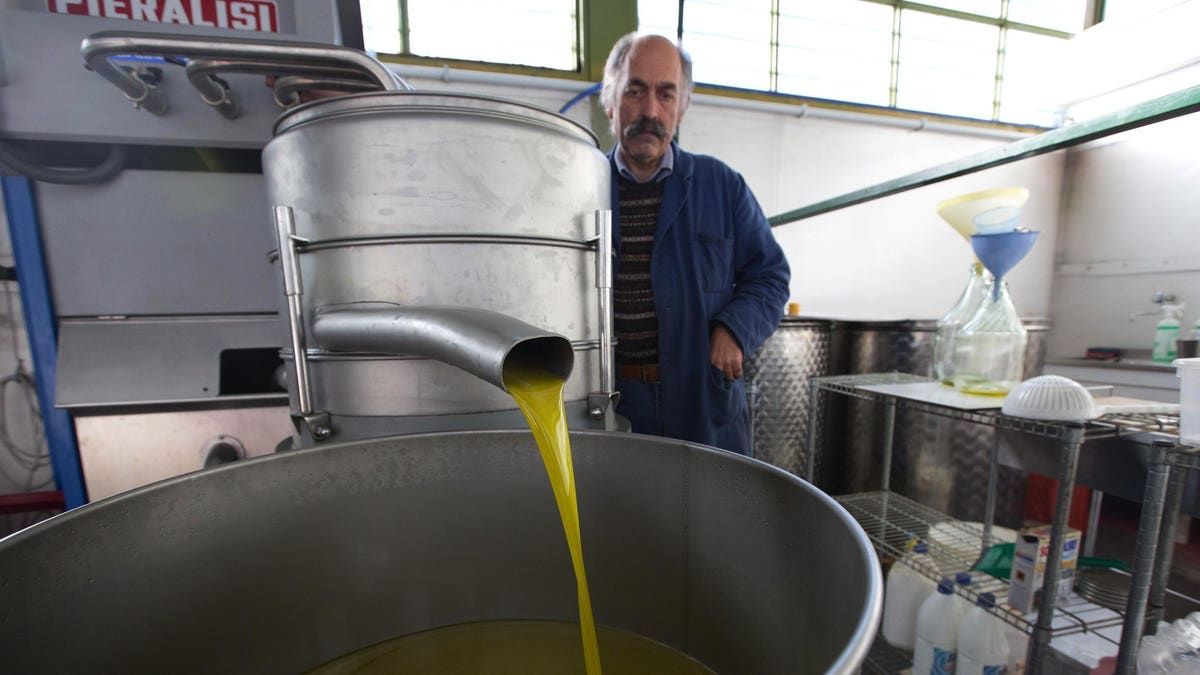
Italian olive oil producer Augusto Spagnoli inspects his production line in this 2014 file photo.
In a move to crack down on adulterated olive oils and regulate a multibillion dollar industry, U.S. lawmakers have commissioned the FDA to create a sampling of oils and implement a testing system for imported products.
Last Tuesday, the U.S. House Agricultural Committee submitted a report detailing concerns over “the prevalence of adulterated and fraudulently labeled olive oil imported into the United States and sold to American consumers.” In addition to false marketing claims, mislabeled olive oils may pose “a serious health risk to consumers who are allergic to seed oil,” which is often used as a filler in cheaper olive oils, the report claims.
Imported oils account for more than 95 percent of olive oil consumed in the United States, which imports about $1.1 billion worth of olive oil annually. In January, a 60 Minutes report found that up to 80 percent of the extra virgin olive oil sold in American supermarkets may be diluted with substandard olive oils—or may even be a different cheap oil altogether that’s been scented and colored.
Following in the steps of Italian lawmakers who recently stepped up efforts to combat olive oil fraud within the country, the U.S. is giving the FDA nine months to “ take a sampling of imported olive oil to determine if it is adulterated or misbranded,” report on its findings to Congress, and make recommendations on how to address the problem.
The committee suggests that consumers may benefit from some type of labeling system to note relative oil purity and demarcate certain additives.
Italy, which is the largest producer of olive oil in the world, has looked into prosecuting cases of fraudulent olive oil production as criminal cases, rather than just legislating fines.
How can you tell if your E-V-O-O is the real thing? Check out our guide on how to avoid fake olive oils.
